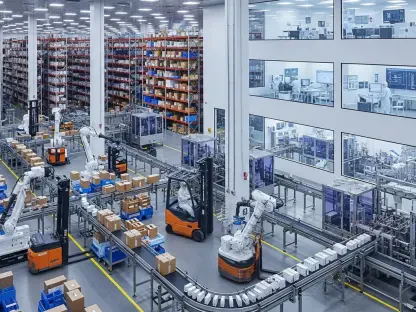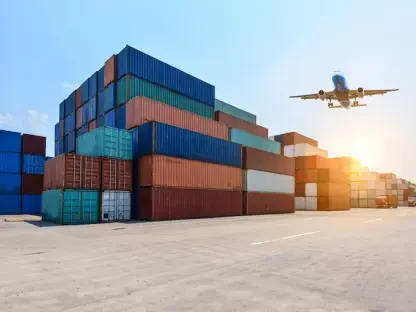Imagine walking into a warehouse where every item is perfectly organized, inventory is instantly updated, and robots seamlessly coordinate with humans to ensure operations run like clockwork. This futuristic vision is fast becoming a reality, thanks to artificial intelligence (AI). The integration of AI into warehouse automation is revolutionizing industries by delivering unprecedented levels of efficiency and precision.
Understanding the AI Wave in Warehouse Automation
In the sprawling world of modern warehousing, traditional logistics face myriad challenges. Stock management, order fulfillment, and real-time tracking have long been cumbersome and ripe for innovation. Here enters AI, offering solutions that not only meet but exceed expectations. With AI’s ability to process and analyze large volumes of data, dynamically adjust operations, and predict future needs, the landscape of warehousing is fundamentally transforming.
The Crucial Role of AI in Modern Warehousing
Today’s warehousing challenges, such as fluctuating demand, labor shortages, and stringent accuracy requirements, call for sophisticated solutions. AI bridges the gap between these complexities and operational efficiency. By leveraging AI, businesses can optimize inventory management, reduce errors, and enhance workflow precision. Broader industry trends point toward an increased reliance on AI to remain competitive and agile.
AI-Powered Automation Systems
Traditional automation systems follow predefined instructions without accommodating real-time changes. AI-powered systems, however, learn from data, adapt to evolving scenarios, and make autonomous decisions. Consider machine learning applications in grocery retail where AI-driven solutions forecast demand, ensuring optimal stock levels and preventing surplus or deficit. Similarly, tire manufacturers utilize real-time data analytics to maintain quality and reduce waste, showcasing AI’s transformative power in various sectors.
Insights from Industry Experts
Pekka Nurmi, Director of Enterprise Architecture & Digitalization at Cimcorp Group, asserts, “AI is enabling us to reinvent automation, fostering smarter and more adaptable systems.” Research supports Nurmi’s insights, indicating AI’s substantial impact on decision-making and operational flexibility. Anecdotes from grocery retailers and tire manufacturers further demonstrate AI’s real-world application and benefits, underscoring its significance across diverse industries.
Strategies for Integrating AI in Warehouse Operations
Implementing AI requires strategic planning. Businesses must focus on integrating AI into existing systems, ensuring seamless transitions with minimal disruption. Steps include predicting maintenance needs, enhancing quality control measures, and optimizing workflows. Practical advice centers on leveraging AI for future readiness, maintaining a competitive edge, and fostering sustainable practices.
Navigating the Future with AI-Powered Automation
The journey into AI-driven automation brings opportunities and challenges. Securing data processed by AI systems is paramount, demanding robust measures to protect against threats. Integrating AI within current infrastructures calls for flexible approaches to minimize disruptions. Moving forward, it’s crucial to develop secure frameworks and collaborate responsibly. By doing so, businesses will refine and enhance technological adaptability, ensuring a future-proof approach to automation.
Overall, AI dramatically elevates automation’s capabilities, ensuring seamless integration within industries. Grocery retailers optimize demand forecasts, enhancing inventory management, while tire manufacturers maintain quality and sustainability. Despite challenges, businesses successfully navigate AI integration, achieve competitive advantages, and adapt to future opportunities.
Reflecting on this transformative journey, businesses now stand equipped with advanced tools, ready to face new challenges. Actionable next steps include prioritizing innovation, fortifying security measures, and embracing AI’s full potential for continued growth and success.









